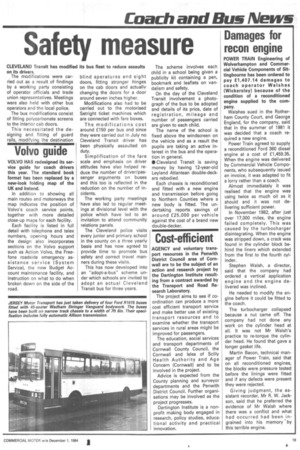Damages for recon engine
Page 21

If you've noticed an error in this article please click here to report it so we can fix it.
POWER TRAIN Engineering of Wolverhampton and Commercial Vehicle Components of Sittingbourne has been ordered to pay £1,407.14 damages to coach operator Welshes (Wickersley) because of the condition of a reconditioned engine supplied to the company.
Welshes sued in the Rotherham County Court, and George England, for the company, said that in the summer of 1981 it was decided that a coach required a new engine.
Power Train agreed to supply a reconditioned Ford 360 diesel engine at a cost of £1,459.35. When the engine was delivered by Commercial Vehicle Components, who subsequently issued an invoice, it was adapted to fit a lorry rather than a coach.
Almost immediately it was realised that the engine was using twice as much oil as it should and it was not delivering sufficient power.
In November 1982, after just over 17,000 miles, the engine failed completely. This was caused by the turbocharger disintegrating. When the engine was stripped down, a crack was found in the cylinder block behind the liners which extended from the first to the fourth cylinder.
Stephen Walsh, a director, said that the company had ordered a vertical application engine and the engine delivered was inclined.
He needed to modify the engine before it could be fitted to the coach.
The turbocharger collapsed because a nut came off. The company had not done any work on the cylinder head at all. It was not Mr Walsh's practice to re-torque the cylinder head. He found that gave a longer gasket life.
Martin Bacon, technical manager of Power Train, said that on all reconditioned engines, the blocks were pressure tested before the linings were fitted and if any defects were present they were rejected.
Giving judgment, the assistant recorder, Mr R. W. Jackson, said that he preferred the evidence of Mr Walsh where there was a conflict and what had occurred had been ingrained into his memory *by this terrible engine.




























































































